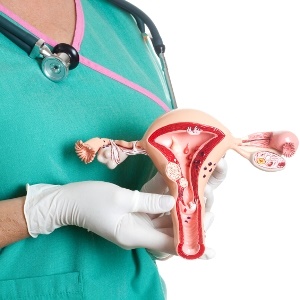
Cervical cancer is the most prevalent cancer for women in South Africa - the statistics indicate that one in 26 women will get it. But it is also the most preventable cancer.
To find ways to better prevent and treat this condition, the research division of Right to Care, headed by Professor Cindy Firnhaber, submitted two groundbreaking presentations at the 30th International Papillomavirus Conference & Clinical Workshop, held recently in Lisbon, Portugal.
Once pap smear test results confirm cervical abnormalities, the current accepted treatment is to cut these out with an outpatient surgical procedure. Prof Cindy Firnhaber, lead investigator at Right to Care, studied a less invasive and quicker treatment which can be carried out by a nurse and has potentially reduced side effect risks: cryotherapy, a treatment which involves freezing the abnormalities.
Read: treating cervical cancer
In South Africa, the surgical removal must be performed by a doctor who uses the LEEP (Loop Electric Excision Procedure). It requires local anaesthesia and highly trained personnel, and the patient is at increased risk for cervical bleeding and infection following the procedure
At present, access for treatment of cervical abnormalities is very limited in the government healthcare sector. Often treatment requires the woman to travel to a referral hospital which maybe many kilometres away and she may need to wait up to 6 - 9 months for treatment. This combination often results in women being lost in the system and not getting the care they need to prevent progression of their cervical abnormalities to cancer.
Firnhaber’s investigation involved 166 HIV positive women who attend Right to Care’s Themba Lethu Clinic at Helen Joseph Hospital. The research, which was funded by PEPFAR through USAID, had extremely promising results and indicated that at six months LEEP does a better job than cryotherapy but at 12 months, the effectiveness of LEEP and cryotherapy are not statistically different.
Read: Risk factors for cervical cancer
“Despite cryotherapy taking somewhat longer to be effective, this provides an alternative treatment for cervical abnormalities which can be done in a local clinic. This avoids the need for the woman to travel and also expands much-needed access to treatment,” Firnhaber explains.HPV testing has traditionally involved taking a vaginal swab and sending it to a laboratory for testing.
The process is expensive and results take time. Firnhaber in collaboration with Dr Zizi Mabulwa in Prof Williamson's laboratory at the University of Cape Town tested a new diagnosis tool which allows for the vaginal swab to be tested at the clinic and the results are available within an hour. The device is so simple to operate that the test can be performed by someone who does not have laboratory technician training.
The diagnosis tool uses Gene Xpert technology, which has been used to for the past few years to revolutionise the diagnosis of TB. It allows rapid diagnosis of TB in around two hours instead of the traditional microbiology method which took approximately 48 hours.
This machine was modified by its manufacturers to do HPV testing. HPV is the human papillomavirus which is one of the most important infectious causes of several cancers. High-risk HPV types are associated with almost 100% of cervical cancers so diagnosing this efficiently is critical in the fight against this cancer.
Read: When cervical cancer strikes
Prof Firnhaber wanted to research whether the GeneXpert was a viable test for HIV positive women. The research involved doing both tests (sending swabs to a lab and testing on GeneXpert) for 1163 patients and comparing the results. The quicker, cheaper GeneXpert test performed as well as the laboratory tests.
“This is particularly good news for those who do not live near the major laboratories,” Firnhaber comments.Women that are HIV positive are three to five times more at risk for cervical cancer. The disease can be detected early by having a Pap smear and then it can be treated. There are often no symptoms for cervical cancer and that is why it is necessary to have regular Pap smears.
Women should have a Pap smear from age 30 if HIV negative and every year if HIV positive. Risk factors for cervical cancers include having sex at an early age, sexually transmitted diseases especially HIV, having multiple partners, smoking and using oral contraception from a young age.
Read more:
Cervical cancer vaccinations in SA




 Publications
Publications
 Partners
Partners










